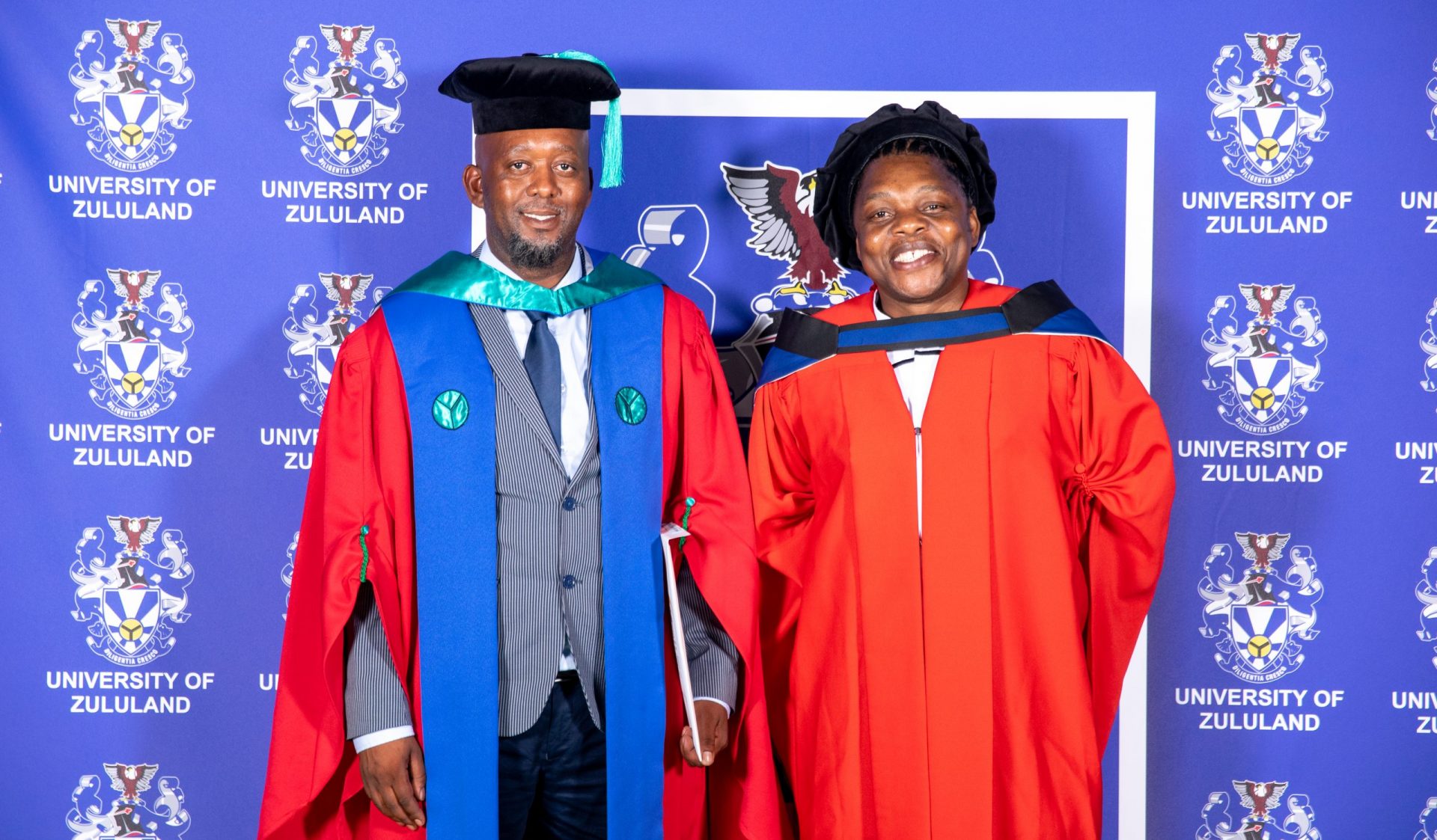Possible Patent Registration for Dr Mohomane’s Eco-friendly Brick

Growing up in QwaQwa in the Free State, Dr Samson Mohomane (36) was always fascinated by science. The question of how certain aspects of life come about intrigued him. That was until he entered high school, where learned that chemistry was the fundamental science of nature.
“I learned that without chemistry, it would be difficult to understand how atoms and molecules behave, which is key in solving many chemical reactions. I knew that I needed to study chemistry if I was to understand how plastics behave, how water is purified and how to find cure(s) for many diseases,” Dr Mohomane recalled.
However, never did it occur to him that he would one day become a worthy contributor to the very field he found enchanting in his childhood.
Dr Mohomane, who was conferred with a Doctor of Philosophy in Chemistry on Friday (11 December 2020), is set to revolutionise the building sector with his eco-friendly brick, produced using sugarcane bagasse.
Considering the current global concerns about the high emission of greenhouse gases in the building sector, for his PhD study, Dr Mohomane sought to investigate whether cement could be replaced by an alternative, low carbon material in the process of manufacturing bricks.
“The main aim was to address the challenges experienced by the agricultural and industrial sectors in terms of minimising unmanaged waste during their production. The key innovation was based on interrupting the macromolecular structure of sugar cane bagasse to develop green bricks and possible polymer composites for the future green products,” he said.
The outcomes of his research demonstrated that the by-product of sugarcane bagasse has a potential to be utilised, in conjunction with other green fillers, to develop appropriate mortar in order to develop competent and sustainable bricks. The bricks developed possessed acceptable masonry properties such as compressive strength, water absorption and passed durability tests as required by various national standards. This mortar has the potential to produce product groups that have similar production characteristics as bricks.
Owing to the preliminary results, Dr Mohomane’s product was queued for patenting. According to Professor Tshwafo Motaung, one of the graduate’s supervisors, once all the tests are re-produced consistently and successfully, a patent will be registered in line with UNIZULU policies. “Meetings between stakeholders (UNIZULU and Tongaat Hulett) are being held to determine a potential of free enterprise from the product and future plans. This is just one of practical solution-based projects we are implanting and doing at UNIZULU,” Prof Motaung said.
Adding to this feat, Mohomane also has an impressive record of published works which include seven published articles in journals and five book chapters. “The articles and book chapters were a true reflection of the amount of work that we put in with my supervisors. I got endless invitations (from) journals to submit my work after they read the first novel article that I published,” he said.
While the journey to obtaining his PhD was strenuous, with the perpetual guidance of his supervisors, Prof Motaung, Prof Sandile Songca and Dr Linda Linganiso, Mohomane was able to wholly invest in his research. He expressed his gratitude to his supervisors, the staff of the Department of Chemistry at Nelson Mandela University, for helping him with preparing and characterising his samples as well the staff of the Department of Civil Engineering at the University of Johannesburg, for their input and conducting the compressive testing of the bricks in their laboratory.
From his overall experience, the graduate said he was able to hone his researching skills and get exposure to the art of writing business and research proposals, commercialisation of products, sourcing funding and conducting presentations. As a bonus, he also learned a new language (isiZulu) and culture as this was his first time studying outside of his home province, Free State.
– Naledi Hlefane
Caption
Dr Samson Mohomane with his PhD supervisor Prof Tshwafo Motaung.














Leave a Reply